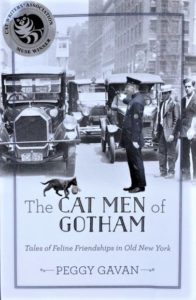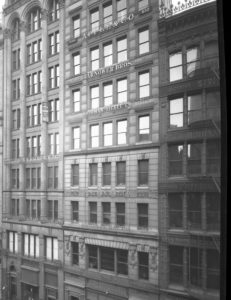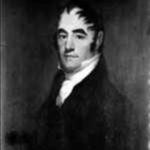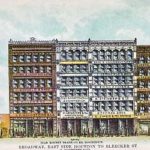1904: Subway Nellie, the Irish Setter Mascot of the Station at Bleecker and Elm Streets » 634BroadwayHIstoricalSociety
The large 12-story store and loft building at 166-168 Crosby Street (through to 632-634 Broadway) was built sometime prior to 1900, which is when Augustus D. Juilliard, a highly successful and wealthy dry goods merchant, purchased the building for $800,000 from Henry Corn. (The loft building had replaced Calvin Witty’s carriage warehouses, where he sold all kinds of buggies, carriages, and harnesses in the 1860s and 1870s.) Following Juilliard’s death in 1919, the bulk of his and his wife’s property, including an estate in Tuxedo Park, NY, and numerous properties throughout Manhattan, were sold to benefit a fund “for the advancement of music in the United States.” The renowned Juilliard School of Music opened in 1920.
The large 12-story store and loft building at 166-168 Crosby Street (through to 632-634 Broadway) was built sometime prior to 1900, which is when Augustus D. Juilliard, a highly successful and wealthy dry goods merchant, purchased the building for $800,000 from Henry Corn. (The loft building had replaced Calvin Witty’s carriage warehouses, where he sold all kinds of buggies, carriages, and harnesses in the 1860s and 1870s.) Following Juilliard’s death in 1919, the bulk of his and his wife’s property, including an estate in Tuxedo Park, NY, and numerous properties throughout Manhattan, were sold to benefit a fund “for the advancement of music in the United States.” The renowned Juilliard School of Music opened in 1920.






